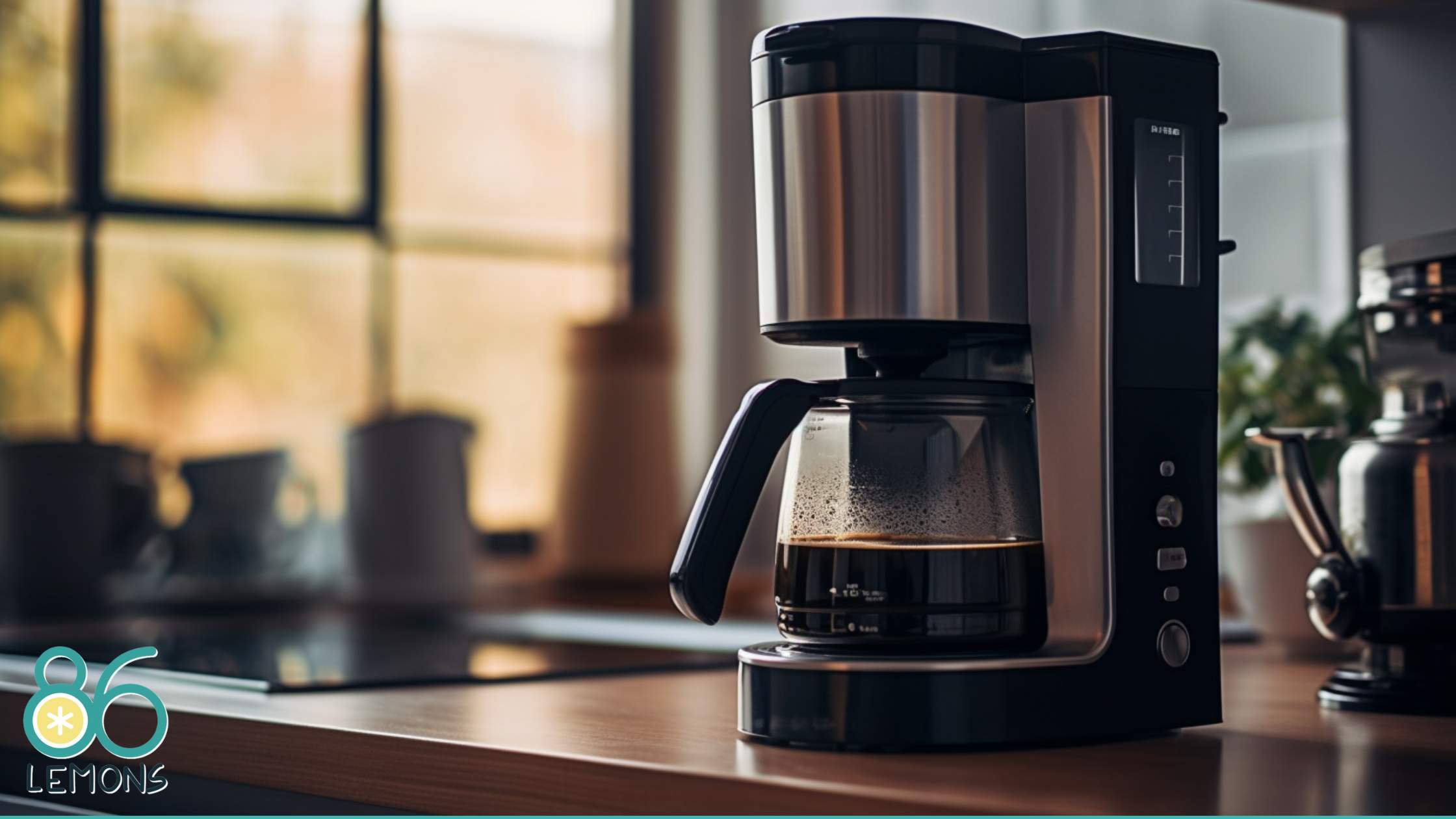Is Coffee Vegan by Nature?
When assessing whether coffee is vegan, you must first understand what constitutes a vegan product. Veganism involves abstaining from all animal products emphasizing plant-based ingredients. Coffee beans are indeed the roasted seeds of the Coffea plant, which naturally classifies them as a vegan-friendly substance.
The basic form of coffee, particularly black coffee that has not been adulterated with additives, is a vegan staple. It contains caffeine, a stimulating compound that remains intact through roasting. Let’s explore the aspects that ensure the vegan nature of coffee:
- Coffee Beans: Sourced from the Coffea plant, these are purely plant-based.
- Roasting Process: Involves applying heat to green coffee seeds; no animal derivatives are involved.
- Black Coffee: Simple brewed coffee with nothing added; no animal ingredients.
It’s important to note, however, that while the coffee bean itself is vegan, the vegan status of coffee beverages can be compromised with non-vegan additives such as milk, honey, or cream. When coffee is served as an unembellished brew, it aligns perfectly with vegan principles.
There are many reasons to become a vegan right now. With that said, if you’re adhering to a vegan lifestyle, ensure any added components are plant-based to maintain the vegan integrity of your coffee.
Understanding Veganism in Coffee Production
When exploring vegan options in coffee production, paying attention to the use of dairy products, availability of plant-based alternatives, hidden non-vegan ingredients, ethical implications, and the significance of reliable certifications is crucial.
The Role of Dairy in Traditional Coffee Products
Traditional coffee drinks include dairy products like milk, cream, and various coffee creamers. These components contribute to the rich texture and flavor that coffee enthusiasts enjoy. However, they are animal-derived and not suitable for those on a vegan diet.
Plant-Based Milk Alternatives
Many plant-based milk alternatives have emerged, such as almond milk, coconut milk, soy milk, and oat milk. These nut and plant milks serve as excellent vegan coffee enhancers that add to the complexity of your coffee without the use of dairy.
Ingredients to Watch for in Coffee
Vigilance is key when it comes to ingredients in coffee products. Additives like certain sugars, syrups, and flavors may compromise vegan ethics. For instance, white sugar processed with bone char or honey is a red flag for vegans. Also, be wary of casein, a milk derivative often undisclosed in many non-dairy creamers.
Ethical Considerations for Vegans
As a vegan, you may also consider the broader ethical dimensions, such as the treatment of farmers and workers, the welfare of animals, and the impact on the environment. Choosing vegan coffee from brands that support fair-trade practices, sustainable harvesting, and environmental sustainability can align your coffee consumption with your ethical stance.
The Importance of Labels and Certifications
Labels and certifications like Rainforest Alliance, Bird-Friendly Coffee Seal, and organic are important indicators. Look for dairy-free, vegan labels or certifications from small, independently owned roasters to ensure your coffee is consistent with vegan principles.
By understanding these facets of coffee production and making informed choices, you can enjoy your brew in a way that aligns with your vegan lifestyle.
Navigating Coffee Additives and Flavorings
Choosing the right additives and flavorings is essential to maintain a vegan lifestyle when enhancing your coffee. It’s important to distinguish between vegan and non-vegan ingredients.
Common Coffee Additives
Common additives in coffee include milk, cream, and sugar, which can be vegan or not, depending on the source. However, alertness is required when encountering caramel and chocolate syrups since these could contain dairy or other animal products. Flavored syrups, like vanilla, hazelnut, pumpkin spice, and toffee, often have artificial colors or flavors that may not align with vegan standards.
| Additive | Vegan Consideration |
|---|---|
| Milk/Cream | Often not vegan |
| Sugar | May be processed with bone char |
| Chocolate Syrup | Check for dairy |
| Caramel Syrup | May contain dairy |
Natural vs. Artificial Flavors
Distinguishing between natural and artificial flavors can be challenging. Natural flavors, such as vanilla or maple syrup, are typically derived from plant sources, but verify they haven’t been processed with animal products.
Artificial flavors may seem vegan-friendly due to their synthetic nature, but some are tested on animals, which might conflict with ethical vegan standards.
Vegan Alternatives for Coffee Creamers and Sweeteners
Switching to vegan alternatives is straightforward: opt for plant-based creamers made from almond, soy, coconut, or oat milk. For sweetening your coffee, choose cruelty-free options like stevia or maple syrup. Vegan coffee syrups are also available to add flavor without compromising on your vegan ethics.
- Vegan Coffee Creamer: Almond, soy, coconut, oat.
- Sweeteners: Stevia, maple syrup.
- Coffee Syrups: Vegan-specific flavored syrups.
Health Considerations for Vegan Coffee Drinkers
When you integrate coffee into your vegan diet, understanding its nutritional impact and how it may benefit your health is crucial. Various factors, such as the type of coffee, what you add to it, and how it’s prepared, can influence these aspects.
The Nutritional Content of Vegan Coffee Options
Plain black coffee is low in calories and contains no animal-derived ingredients, making it a staple in a vegan diet. If you choose to add plant-based milk, consider the nutritional value of your choice. For example, almond milk is often lower in calories than soy or oat milk, but it may have less protein.
Potential Health Benefits of Vegan Coffee
Coffee is rich in antioxidants, which can help protect your cells from damage. Studies have suggested that regular consumption of antioxidant-rich coffee might be linked to a reduced risk of chronic diseases such as cancer, heart disease, and type 2 diabetes.
Decaffeinated Coffee in a Vegan Diet
If you opt for decaffeinated coffee, you’ll still enjoy the benefits of antioxidants without caffeine. Decaf coffee can be a good choice if you’re sensitive to caffeine or if you’re trying to reduce your caffeine intake for health reasons.
Non-Dairy Milk Nutritional Comparison
When considering non-dairy milk to accompany your coffee, here’s a basic comparison to help you decide:
| Type of Milk | Calories per 100 ml | Protein | Fat |
|---|---|---|---|
| Almond Milk | 13-17 | 0.4-1g | 1.1g |
| Coconut Milk | 20 | 0.1g | 2g |
| Soy Milk | 33-45 | 2.9-3.3g | 1.8g |
| Oat Milk | 43-50 | 0.5-1g | 1.5g |
| Cashew Milk | 24-47 | 0.5-1g | 1.5-3.5g |
Each type of plant milk has its unique nutritional profile, so your choice can vary depending on your dietary needs.
Vegan Coffee Lifestyles and Trends
With the rise in veganism, your cup of coffee is becoming more than just a morning ritual; it reflects a commitment to sustainability and ethical consumption that are integral to a vegan lifestyle.
Going Beyond the Cup: Vegan Coffee as a Lifestyle
Embracing vegan coffee is about more than just choosing plant-based milk. You’re participating in a trend that encompasses sustainability and ethical responsibility.
By preferring vegan coffee, you’re often supporting fair trade and sustainable farming practices that prioritize biodiversity and the welfare of workers. This broader perspective influences your daily choices, as you may seek out coffee charities and brands that align with these values.
Popular Vegan Coffee Orders and Barista Tips
When ordering a vegan coffee, the options are vast. From Starbucks coffee to local cafés, you can enjoy classics like a soy latte, an iced coffee with almond milk, or a rich cold brew with oat milk.
Baristas can be your guide to the best dairy-free alternatives and may even share how different plant-based milk interact with the acidity of the espresso to enhance flavor. Beyond just milk choices, you can also look for K-cup coffee varieties labeled as vegan for a quick at-home brew. These go especially well with a vegan apple tart!
Global Impact and Consumer Choices
Choosing vegan coffee is more than a personal health choice; it’s a global statement. By selecting ethical coffee and supporting establishments that offer plant-based options, your purchase becomes a vote for an industry that values sustainability and biodiversity.
As the demand for vegan products grows, you encourage more ethical and sustainable business practices. Every cup of vegan coffee contributes to a collective push for greater environmental responsibility and animal welfare.
Frequently Asked Questions
In navigating the world of coffee as a vegan, you might have questions about ingredients and products. Here are concise answers to some of the most common queries.
What ingredients should vegans look out for in flavored coffees?
When considering flavored coffees, watch for certain additives like honey or milk-derived ingredients unsuitable for vegans. Sometimes, natural flavors involved in flavored coffees might also have animal origins, so checking labels or contacting manufacturers is advisable.
Are there any animal-derived additives commonly found in coffee products?
Some coffee products may include animal derivatives such as gelatin in coffee pods or milk proteins in certain creamers. Be sure to read labels carefully to avoid such additives.
Can vegans consume decaffeinated coffee without concern for animal products?
Decaffeinated coffee is typically free from animal products. However, decaffeination sometimes uses chemicals, so selecting brands that use a water- or carbon dioxide-based process may be preferable for those seeking natural methods.
Which plant-based milk alternatives are best for pairing with coffee?
Soy, almond, oat, and coconut milk are popular plant-based alternatives to coffee. They vary in taste, nutritional content, and how well they froth, so you may want to try several to find your preferred option.
Are typical processing methods for coffee beans vegan-friendly?
The standard processing methods for coffee beans—washing, drying, and roasting—are typically vegan-friendly as they do not involve animal products. You can also use these best coffee makers for small spaces!
How can one ensure that coffee creamers are vegan?
To ensure creamers are vegan, look for ones labeled explicitly as such. These often use almond, soy, or coconut bases instead of dairy. Checking the ingredient list for dairy derivatives like casein or whey can also help identify non-vegan creamers.







